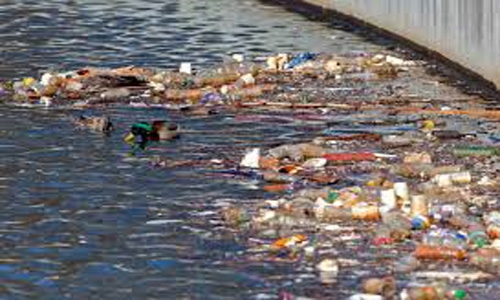Bahrain’s worsening water quality & pollution
The aggravating conditions caused by climate change have seriously impacted the ambient air and water quality across the world. Nations situated in arid and dry geographic locations such as Bahrain are experiencing even tougher and challenging conditions as burgeoning population and intensifying urbanization have increased the demand for natural resources such as water. But parallelly Bahrain has been experiencing increasing levels of environmental degradation that have led to a sharp drop in groundwater table and a rapid rise in water salinization thereby rendering the same unfit for drinking. Another challenge for Bahrain is the problem of water resource availability. Self-sufficiency in water resources is a real-time issue for Bahrain as the nation has an astounding 96.6 per cent of water dependency. This translates to the fact that most of Bahrain’s water requirements are fulfilled from outside the country
Like most Arab regions, Bahrain has been at the receiving end of rising temperatures and falling rainfall levels. As a result of this groundwater recharge and replenishment of the aquifers has been compromised and the relentless extraction of the groundwater has only worsened an already bad situation. The absence of freshwater below ground has encouraged the leaching of seawater into the underground water table resulting in the freshwater being replaced by saline water. This has led to the soil quality being compromised. But the most unfortunate collateral damage of this saltwater intrusion into the groundwater table is the adverse impact on agricultural productivity. As groundwater becomes more and more saline, the farmers are increasingly unable to use the same for their crops leading to the abandonment of the once lush farmlands which eventually become disused and lead to desertification. This rising trend of desertification is leading to a drop in agricultural productivity and causing a serious threat to food production.
The Food and Agriculture Organization (FAO) of the United Nations examined the water quality in Bahrain and found that the fluoride concentration was between 0.50 to 1.46 mg per litre and it was also discovered that 38 per cent of the indigenous water supply had fluoride levels that were over and beyond the safe limits prescribed by the UN. To counter these conditions, Bahrain is making efforts to make the water quality better. But efforts towards generating scientific awareness amongst the general public regarding the water quality levels will go a long way in making concrete progress in ensuring superlative water quality levels.
To enable this, the authorities can explore innovative proposals such as distributing free and compact water testing kits to households and offices. This will serve the dual purpose of ensuring the collection of quality primary data on water quality for the government and also increase the public knowledge on water quality so that further pollution can be stemmed at the source.
Additionally, the data so collected can be used to map geographical areas in Bahrain and divide the same into clean water areas and areas with suspect water quality. This will help authorities concentrate on areas that have worse water quality levels and enable them to calibrate the countermeasures accordingly.
According to the research conducted by the World Research Institute (WRI), Bahrain has high levels of domestic water consumption and this aspect is adding to the woes as water supply levels are already dwindling in the face of rising pollution and salinization levels. But the more concerning findings of the WRI report is the fact that out of the 167 countries studied, Bahrain is expected to be the most water-stressed nation by the year 2040. Given the fact that Bahrain is only two decades away from the projected year of water resource difficulty, there is an urgent need for the authorities to put in place an action plan that seeks to replenish water resources, reduce water pollution and optimize water usage to bring down the water wastage.
This can make the much-needed difference. The provision of quality air and water is the basic civic requirement of any progressive nation and this is true for Bahrain as well.
To move into a water-secure future, Bahrain must establish the “clean water & ample water” initiative and act on the same aggressively. Moving forward on this initiative it will be crucial for the authorities to arrest the continuing slide in the quality of water resources and ensure that the sources of water pollution are immediately identified and nullified.
Additionally, there is also the need for Bahrain to examine its position of water dependency and evolve methods to regain self-sufficiency in drinking water resources through large scale desalinization projects and innovative technologies such as Atmospheric Water Generators that rely on ambient humid air to generate pure water.
Article by Kota Sriraj
Article by Kota Sriraj.
Related Posts


